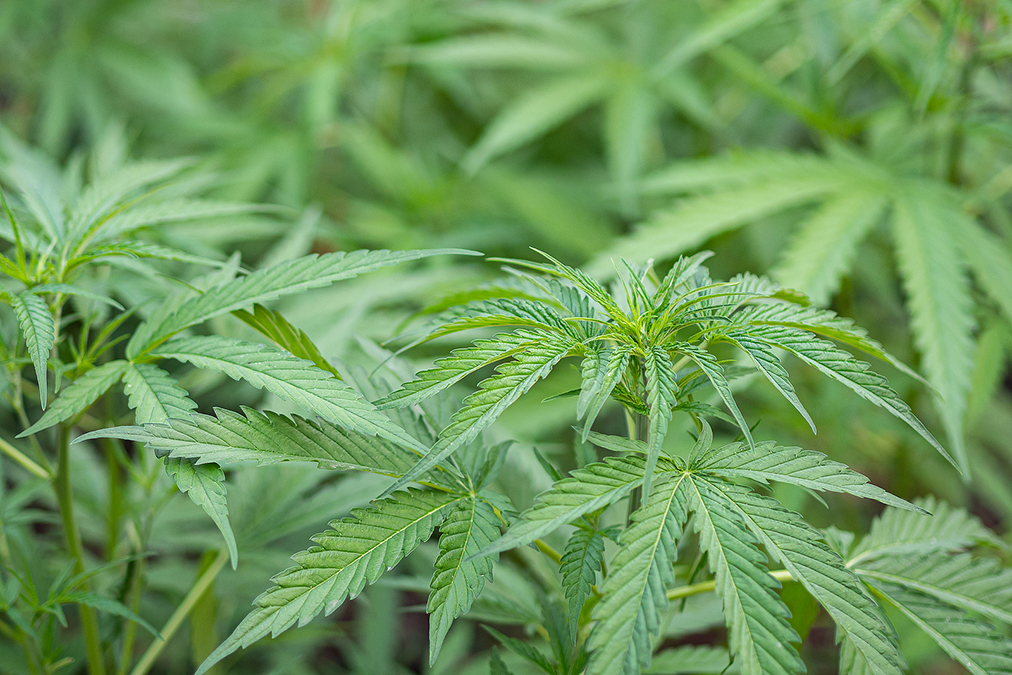 Opioids are one of the most common and most effective methods to treat arthritis pain. But they’re also extremely dangerous, causing over 70,000 deaths every year in the USA.
Opioids are one of the most common and most effective methods to treat arthritis pain. But they’re also extremely dangerous, causing over 70,000 deaths every year in the USA.
So scientists have been looking for a way to replace opioids with something safer.
Surprisingly, two new studies presented at the annual meeting of the American Academy of Orthopedic Surgeons in Chicago revealed a solution in the form of a common plant.
The main problem with opioids is physical addiction, or the phenomenon of requiring greater and greater amounts to achieve the same pain-relieving effect as before.
Even worse, today’s opioids are stronger than they’ve ever been, with the US Drug Enforcement Administration estimating Fentanyl to be 80–100 times stronger than morphine.
The problems with these drugs lead people to overdosing quite accidentally, which explains the incredible annual death toll.
The scientists responsible for the new studies discovered that 50 million Americans suffered some form of chronic pain unrelated to cancer and wanted to find out whether medical cannabis could reduce the need for opioids in this population.
Their studies focused on people with lower back pain and arthritis as these are common causes of chronic pain that drive people to opioids.
Led by scientists from Thomas Jefferson University Hospital in Philadelphia, the team analyzed opioid prescriptions that were filled for back pain and arthritis sufferers who also qualified for medical cannabis access between February 2018 and July 2019.
The main benefit of medical cannabis over opioids is that it’s not physically addictive and we don’t need larger and larger amounts to achieve the same effect as before.
They compared the average morphine milligram equivalents (MME) per day of opioid prescriptions obtained by the patients during the six months before the cannabis access to the six months after they gained cannabis access.
-
1. The average MME of opioids per day dropped from 15.1 to 11 for the back pain sufferers and from 18.2 to 9.8 for the arthritis sufferers.
2. 38.7 percent of people with back pain and 37.5 percent of those with arthritis dropped opioids completely.
3. Back pain sufferers who administered the cannabis via two or more routes reduced their daily MME from 13.2 to 9.5.
4. All the participants reported significant pain reduction, better function and physical health, and improved quality of life months after they started the medical cannabis.

 Overcoming IBD
Overcoming IBD Multiple Sclerosis
Multiple Sclerosis Banishing Bronchitis
Banishing Bronchitis Gum Disease Gone
Gum Disease Gone Overcoming Onychomycosis
Overcoming Onychomycosis Neuropathy No More
Neuropathy No More The Prostate Protocol
The Prostate Protocol Brain Booster
Brain Booster
 Ironbound
Ironbound
 Solution for Shingles
Solution for Shingles
 The Bone Density Solution
The Bone Density Solution
 The Ultimate Healing Protocol
The Ultimate Healing Protocol
 The Parkinson's Protocol
The Parkinson's Protocol
 The Chronic Kidney Disease Solution
The Chronic Kidney Disease Solution
 Overthrowing Anxiety
Overthrowing Anxiety The Fatty Liver Solution
The Fatty Liver Solution The Hypothyroidism Solution
The Hypothyroidism Solution
 The End of Gout
The End of Gout The Blood Pressure Program
The Blood Pressure Program
 The Oxigized Cholesterol Strategy
The Oxigized Cholesterol Strategy
 Stop Snoring And Sleep Apnea Program
Stop Snoring And Sleep Apnea Program
 The Arthritis Strategy
The Arthritis Strategy The Vertigo & Dizziness Program
The Vertigo & Dizziness Program The 3-Step Diabetes Strategy
The 3-Step Diabetes Strategy Hemorrhoids Healing Protocol
Hemorrhoids Healing Protocol The Erectile Dysfunction Master
The Erectile Dysfunction Master Weight Loss Breeze
Weight Loss Breeze The IBS Program
The IBS Program The Insomnia Program
The Insomnia Program The Migraine and Headache Program
The Migraine and Headache Program The Neck Pain Solution
The Neck Pain Solution The Menopause Solution
The Menopause Solution The Ejaculation Master
The Ejaculation Master The TMJ Solution
The TMJ Solution The Acid Reflux Solution
The Acid Reflux Solution The Fibromyalgia Solution
The Fibromyalgia Solution The Psoriasis Strategy
The Psoriasis Strategy